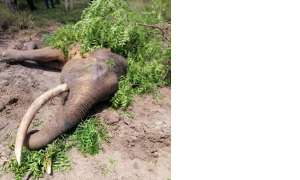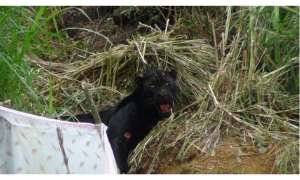Many decisions regarding the environment taken in the last several months don’t seem to favour the environment. From cancelling permits issued for sand mining to deforesting vast stretches of forest land, destroying mangrove systems, giving away firearms to control the human-elephant conflict, the list certainly seems endless. Environmentalists have taken to social media and have even gone to the extent of filing petitions, staging protests, meeting with relevant authorities, departmental heads to stop these looming environmental disasters from taking place. It looks like that many officials are against these moves but have been burdened with political pressure. Therefore, whether all these efforts would fall on deaf ears remain a question.
WHAT COULD BE DONE
According to Jayantha Wijesingha, Convener of Rainforest Protectors Sri Lanka agricultural lands constitute 33% of the total land area. Speaking particularly on the move to remove the 05/2001 circular he said that only 12% of this 33% land area is used effectively and efficiently according to Land Use Policy Planning Department data. "There are many abandoned lands in the North including Jaffna, Kalmunai, Ampara, Kurunegala, and many other areas. So these areas could well be utilised without destroying sensitive ecosystems.”
Image: Tusker killed inside Wilpattu National Park
Moves to put electric fences to mitigate the human-elephant conflict have made no change as most fences do not have electricity in them. Within this week alone, one elephant living in the wild succumbed to gunshot injuries near the Inginimitiya reservoir while another elephant that was shot near the Kadavara Reservoir in Demaliya is in a critical condition. What is worrisome is that no suspects have been arrested so far. Environmentalists believe that stringent laws and enactment of the law are vital to bring about a change.
However, even the Flora and Fauna Protection Ordinance does give powers to both the Wildlife Conservation Department and the Police to arrest suspects and those who commit wildlife crimes, but no proper evidence is found. In many cases, it is alleged, that they have strong political affiliations. The Daily Mirror Life also learned how cattle farms and large scale private cultivation projects are happening inside nature reserves when such activities are strictly prohibited by the law. Many other activities prohibited by law including snaring still happen in broad daylight at the cost of lives of protected species such as the leopard.
Image: Black leopard caught in a snare
QUESTIONABLE ENVIRONMENTAL PROJECTS OVER THE PAST FEW MONTHS
• Cancelling permits required for sand and rock mining thereby allowing anybody with a small truck or similar vehicle to do these activities. River sand mining happens frequently and without a permit it is easier for people to make a few extra bucks.
• Giving away firearms to Civil Defence Force officers working in the front lines to manage the human-elephant conflict. The purpose was twofold: the firearm could be used in self defence and to chase away elephants. Environmentalists raised their voices against this move and even staged protests.
• Approval given to carry out private projects and deforestation in sensitive ecosystems such as the Sinharaja Forest, Orugalayaya Forest Reserve, Vidathalathivu Reserve, Alankulama Reserve, Kiralawa Reserve (along an elephant corridor), 60 acres of temple land in Galgamuwa also through a forest patch frequented by elephants, Flood Plains National Park, Knuckles Forest Reserve, Sampalthivu Mangrove Reserve and many other areas.
• Move to cancel 05/2001 circular thereby allowing state forest patches to be released from the purview of the Forest Department back to Divisional secretariats and government agents. The Daily Mirror Life learned that several forest officers have been asked to demarcate potential areas that could be released this way. If the go-ahead is given as many as 500,000 hectares of forest land around the country could be deforested in the face of development.
Image: Sand-filled as part of the beach nourishment project washed away at Mt. Lavinia beach
• Beach nourishment project at Mt. Lavinia, Ratmalana-Angulana and Calido beach stretches. The sand filled at Mt. Lavinia beach washed away in what was seen as an unusual erosion during the curfew period but the Coast Conservation Department justified the situation stating that it had happened as planned. However, a few days later a lot of single-use plastic waste accumulated along the Mt. Lavinia beach stretch and environmentalists speculated whether the Project had any link to the sudden accumulation of waste.
Image: Waste accumulated at Mt. Lavinia beach
• Garbage disposal at Muthurajawela wetland
• Aloe vera project at the Wilpattu National Park buffer zone
• Mineral exploration / mining projects from Komari to Akkaraipattu and Mannar Island
• Increase in snaring resulting in as many as five leopard deaths including the rare black leopard during the first quarter of 2020.
• Appointment of 'honorary directors'
GLOBAL CONCERNS
Speaking at the WNPS monthly lecture, Sir Robert Watson, a British chemist who has worked on atmospheric science issues including ozone depletion, global warming and paleoclimatology since 1980s pointed out that climate change, loss of biodiversity and land degradation are not environmental issues but developmental, economic, social, security, moral and ethical issues. “There’s no question that they are undermining human well-being and should be addressed by governments, private sector and civil society. Unfortunately, we are not reaching any targets and therefore undermine the UN Sustainable Development Goals. Hence transformative changes are needed. Apart from global warming, precipitation patterns and sea levels too would change with climate changes. There will be more floods, an increase in vector-borne, water-borne diseases, more people will die of heatstrokes, reduced food supplies, and extreme weather conditions. Ocean acidification due to the absorption of carbon dioxide from the atmosphere will adversely impact fisheries and coral reefs. We need to start using renewable energy as the impacts of climate change will get worse. Those in developing countries are already more vulnerable.”

Pictured: Sir Robert Watson
He further said that nature is important for human quality of life. “Over the past 50 years we are producing far more food, medicine, fibre, and we need them for human wellbeing. But in order to produce them, we have converted our forests, mangroves into plantation forests and agricultural systems. Therefore nature cannot regulate its services any longer which shows that we have produced our food and medicines at a major expense.
Image: Clearing at Sambalthive lagoon
75% of land area, 66% of the oceans are highly modified and degraded, we have already lost 85% of wetland areas and by 2050 we would have converted 90% of land. One million out of eight million animals, plants, insects and other species are under threat of extinction. The global extinction rate is tens of hundreds of times higher than it has been on average over the last 10 million years.”
He further said that climate change and biodiversity shouldn’t be considered as two different aspects. “The most adverse threat to biodiversity is climate change. Indigenous people and local communities are incredibly important. They know to manage natural resources and biodiversity and they have done a good job of adapting to the environment. They have lived with nature and are part o f nature. They occupy 25% of the global land area, 35% of protected areas and in areas we try and conserve, nature is declining less rapidly. There are 20 Aichi Biodiversity Targets which were agreed in Japan in 2010. But many of them have little to no progress or we are moving away from the target. Some targets such as equitable sharing benefits, actionable biodiversity plans and improved scientific understanding could possibly be achieved.”
Speaking about solutions, he said that reforestation could be very positive but also there could be negatives. “Large scale afforestation and large scale bioenergy could undermine biodiversity if we use monocultures it will undermine food and water security. We need to change our governance and everybody should be involved in the decision-making process.”







0 Comments